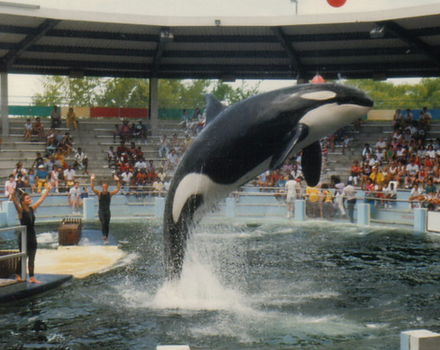Essays
Alaska Quarterly Review, 2021.
On July 27, 2019, a woman named both Squil-le-he-le and Raynell Morris stood at a cluster of microphones. Flags behind her snapped in the wind. She was here to make an announcement. When she spoke her voice wavered, cracked. Another woman, named both Tah-mahs and Ellie Kinley, put a hand on her shoulder. “We are exercising our inherent right to file an intention to sue,” Morris told the gathered crowd. Their object: to bring a long-lost member of their family home. “We care,” Morris said. “We’re not gonna stand by. We’re gonna take action.”

“Finding a Home for Your Work: Should You Submit to Contests or During Open Reading Periods?”
Poets & Writers Magazine, 2020.
When Leslie Jamison first heard about the Graywolf Press Nonfiction Prize, the discovery changed the trajectory of her career. It was 2011 and her first novel, The Gin Closet, had come out with the Free Press, a now-shuttered imprint of Simon & Schuster, a year earlier; she was writing essays but not yet thinking in terms of a book. “I loved Graywolf’s poetry books and felt a sense of kinship with the work they were putting into the world,” she says, “and somehow the idea of this contest got me thinking about what might happen if I assembled my essays into a collection.”

“American Folly, American Dream”
Guernica Magazine, 2019.
In 1997, J. David Bamberger commissioned the world’s largest man-made bat cave, to be built on a large tract of parched land in the Texas Hill Country he had purchased almost 30 years earlier. The cave cost at least $170,000 and was dubbed the Chiroptorium, a marriage of auditorium and chiroptera, the taxonomic order for bats. Its structure consisted of three domes—eight thousand square feet of roosting space—made from twenty tons of rebar sprayed with gunite, a mixture of sand, water, and cement most often used in the construction of in-ground pools. “I wanted to demonstrate that man-made habitat can mitigate man-made damage,” Bamberger told a reporter for BATS magazine.
Articles
Poets & Writers Magazine, 2021.
Visitors to Oral Florist, an online sound library that features short recordings of writers and other artists reading encountered texts, find themselves on a rich green landing page laced with the outlines of brighter green leaves.
Poets & Writers Magazine, 2021.
Creature Conserve seeks to address a failure of communication around conservation, encouraging discussion and collaboration between the people who study animals and the people who depict them in writing and art.
“What Our Contributors Are Reading This Fall”
The Paris Review Daily, 2020.
One of the most transformative literary experiences of my past few months has been a podcast called Literature and History, which is written, researched, performed, sound-engineered, and everything-elsed by one incredibly talented guy, Doug Metzger.
“Little Libraries, Big Impact”
Poets & Writers Magazine, 2020.
Early in March a box was erected outside the Association for the Advancement of Mexican Americans (AAMA) in Houston. Orange and with a slightly pitched roof, the box stands on a short post and bears illustrations by John Parra from the children’s book Little Libraries, Big Heroes (Clarion Books, 2019).
The History of Independent Publishing (Series)
Community of Literary Magazines & Presses, 2020-2021.
This growing series features short essays about the many publishers that have contributed to the collective story of independent publishing in our country—including pieces on North American Review, The Crisis, Arte Público Press, and others.
“Poetry & the Women's Suffrage Movement”
American Poets, 2020.
When Susan B. Anthony—social activist and icon of America’s women’s suffrage movement—turned eighty in 1900, her fellow suffragist Elizabeth Cady Stanton dedicated a three-part poem to her “honored friend.” In the first numbered section, Stanton recalls “that day in June, when first we met,” and in the second she pays tribute to the years they spent together “climbing the rugged Suffrage hill.”
“KGB Bar in NYC Fights to Stay Afloat”
Poets & Writers Magazine, 2020.
The website for KGB Bar, one of the New York City literary world’s most iconic gathering places, currently features a black banner: “In compliance with New York State government orders in response to the COVID-19 pandemic emergency, KGB Bar and The Red Room will be closed till we’re able to gather and work safely.”
“The Campaign to Save Lambda Literary”
Poets & Writers Magazine, 2020.
Last June, Alexander Chee stood in front of a cheering crowd at the 2019 Lambda Literary Awards to receive the organization’s Trustee Award, which, as actor Anthony Rapp explained in Chee’s introduction, honors “individuals who have broken new ground through their achievements, passionate commitment, and contributions” to the LGBTQ literature and arts community.
Lesson Plans
Teach This Poem, Fall 2020 to Spring 2021
Poets.org
I worked as the Education Content Specialist, with Ansley Moon and the education content team at the Academy of American Poets, to curate, edit, and produce Teach This Poem, a series of poetry lesson plans that received the 2018 Innovations in Reading Prize from the National Book Foundation. The Fall 2020 line-up includes poems by Joy Harjo, Naomi Shihab Nye, Ada Limón, Ilya Kaminsky, and more; the Spring 2021 line-up includes poems by June Jordan, Alexander Posey, Craig Morgan Teicher, Tina Chang, and more.
